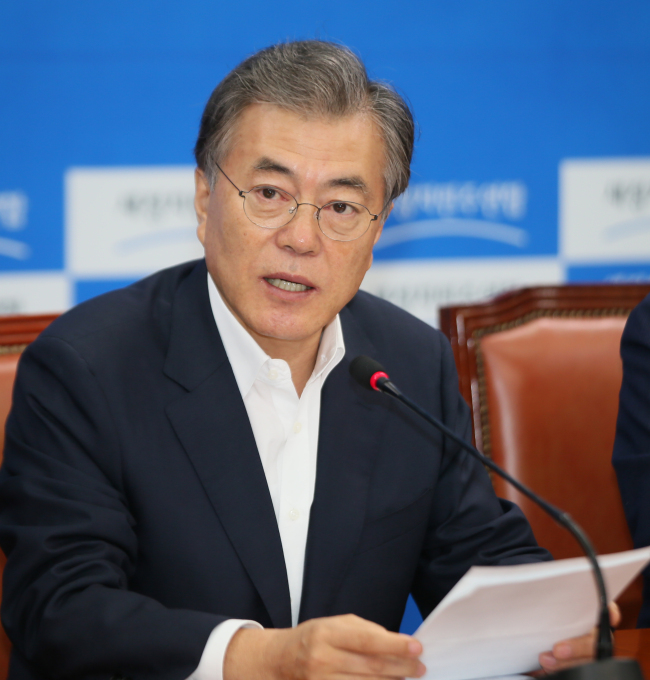South Korea’s rival parties Tuesday welcomed the two Koreas’ agreement that effectively ended the latest military standoff, urging Seoul to build on the momentum and take concrete steps to ease cross-border tensions.
The ruling Saenuri Party and the main opposition New Politics Alliance for Democracy hailed the government’s efforts to elicit North Korea’s regret over the land mine explosion that wounded South Korean soldiers this month.
Urging the need to turn the crisis into an opportunity for the two Koreas’ relations, the parties called for the prompt arrangement of separate family reunions and follow-up measures to prevent similar provocations from the North in the future.
“I am really glad that high-level talks ended on a sound note,” said the ruling Saenuri Party’s chairman Rep. Kim Moo-sung. “We owe the success to the people and the military who stood united,” said Kim.
NPAD chairman Rep. Moon Jae-in also offered rare commendation to the government, saying: “I appreciate the government’s efforts to ease cross-border tensions through the high-level talks. Taking this incident as an opportunity, I hope that both sides will take follow-up measures to prevent another such abnormal incident along the Demilitarized Zone.”
 |
| NPAD chairman Rep. Moon Jae-in. (Yonhap) |
NPAD’s senior lawmaker Rep. Park Ji-won, who chairs the party’s Special Committee for Peace and Security, meanwhile urged the government to consider an inter-Korean summit to further the momentum. The last inter-Korean summit was held in 2007.
But Kim Kwan-jin, chief of Cheong Wa Dae’s National Security Office who represented the South during the negotiation, dismissed such speculation during a midnight press briefing, saying that it is “too early” to consider the summit at the current stage.
While the parties showed rare bipartisan support and refrained from politicizing the event, the NPAD also took time to mention the government’s handling of the agreement that they said left room for misinterpretation of the deal that could later undermine the historic agreement’s trustworthiness.
“Upon hammering out the agreement, South Korea’s chief negotiator Kim Kwan-jin announced that North Korea agreed to apologize for the land mine incident and prevent a reoccurrence. That differs from the actual wording in the agreement and could be considered as a distortion of what both sides agreed on,” said Moon.
Under the joint communique, North Korea expressed regret over the land mine explosion.
By Yeo Jun-suk (jasonyeo@heraldcorp.com)

